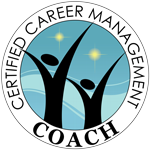We are excited about 2017! The economy has improved and GDP is forecasted to be higher than previous years. All good stuff.
In my coaching calls this past week, I gathered that many of you are now looking to explore new opportunities. The job landscape overall appears very positive. Frankly, these past couple of years have become much more of a collaborative and challenging conversation whereby assessing one’s career path and where it could lead, versus where you want it to go. So, I think now is a very favorable environment to make a change.
Last year, I got a lot more questions regarding “what-ifs”. Questions like: What’s the job market like? Is it slowing down or picking up? Who’s hiring? Who’s downsizing? If I take this job, do you think the company will be acquired in a few years? These are all fair questions.
There may not always be “right” answers, but the more information you gather, the more equipped you are in making effective decisions.
In my coaching discussions, I help unwrap any anxiousness and point out some key strategies you may want to consider. You need to be in-the-know as much as possible and have an edge on the landscape ahead. Staying informed will help you understand the company, your role, and know what to anticipate.
The job market is ever-changing. Job roles are becoming more diverse and employers are expecting more productivity in their employees. Twenty or so years ago when I was in corporate life, it was predictable on what your next job would be. It was a little less stressful because we pretty much knew the next career step. No real surprises.
In 2017, we will witness a healthcare industry on the verge of changing again. Hopefully more simplistic, less sophisticated, and easier to get implemented. The complexity and “tyranny of the urgent” forces us to be ready for anything.
As a career coach, let me recommend three basic key steps in maintaining the edge to get noticed, score a promotion, and stay on the right career track:
1. Be honest with yourself. Are you working strategically and intelligently? Are you too complacent? Take a minute and step back. Evaluate your own job performance. Break out the job description outlining your current role. Are you performing all that is required? Because if you are taking short-cuts, it will eventually show. Be thorough and be effective. Master the basics first, then work to go above and beyond.
2. Better understand your company and department objectives. Working in a vacuum is dangerous. You may “feel” you are on-track, but are you? I was listening to a mid-level executive last week who mentioned he wasn’t getting the visibility he deserved. Turns out he was partially working on another department project that was not his direct responsibility. Regroup and do the proactive assignments that get you noticed while maintaining your responsibilities and department objectives
3. Appeal to your creative mind. Yes, think ‘out of the box’. Everyone has creativity. Some better than others. We all offer different views and perspectives. A key ingredient, and requirement, is understanding the work landscape – your stakeholders, the environment, your competitors. For example, when in the midst of a product launch, what factors are involved? Is it price, positioning, competitive intelligence? Lean on past projects and accomplishments to help scope out a new strategy. Invite your colleague to give you candid and honest feedback on your contributions and performance. Recommend new, innovative ways to test an idea or product or analyze quantitative results that stretches beyond an obvious result. Creativity will stir new opportunities. There’s risk in every reward, but moving up will follow.
Companies want employees to creatively contribute and be impactful. Follow these recommended steps and you will be on track to impress and excel in 2017 and beyond!
Make it count,
Steve Kane
President, PharmaOne Search
803.325.1655

